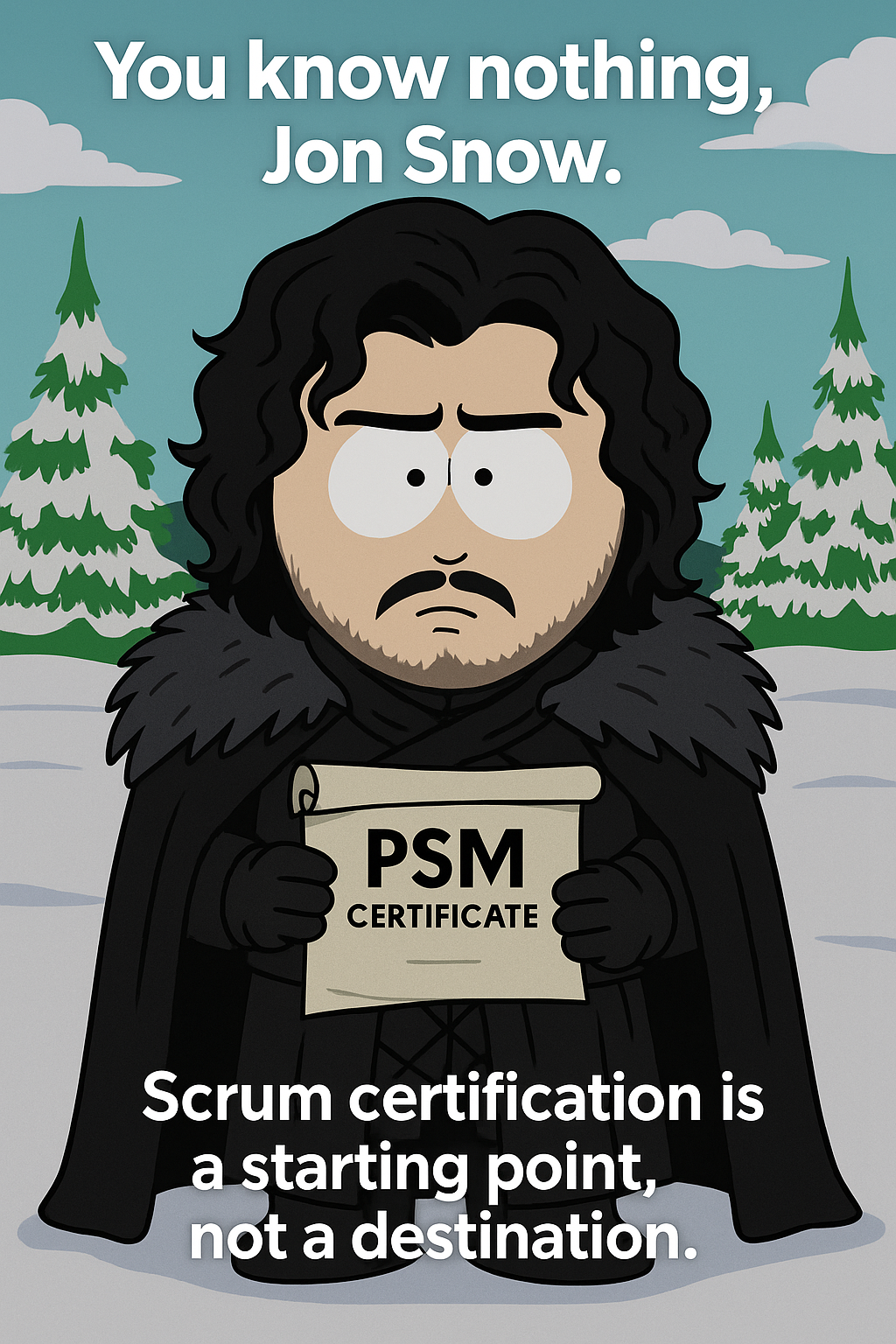
Scrum has been around for three decades. The Scrum Master role is one of its three accountabilities, yet it remains widely misunderstood and undervalued in many organizations. If this continues, the role could disappear or change beyond recognition in the next few years.
Maybe Scrum Masters will still exist in five years. But only if something changes.
Most companies still do not understand the Scrum Master role. It is often treated like a glorified note-taker, a meeting scheduler, or a Jira babysitter. In many places, the role boils down to asking three outdated questions at the Daily or running the Retrospective.
Sometimes, the Scrum Master accountability is rotated each Sprint from one Developer to the next.
That is not leadership. That is a waste of potential.
If that is all a Scrum Master does, the role should vanish. And frankly, it will vanish unless the Scrum Master community steps up.
How Scrum Masters Must Evolve
Scrum Masters need to grow:
From delivery spectators to delivery enablers of real outcomes
From quiet observers to loud protectors of empiricism
From servant-only to leader-first with a heart for service
From tracking velocity to teaching the Product Owner how to measure value
From meeting facilitators to organizational influencers
From process police to people leaders
From helping individuals to enabling whole teams
From simply following the Scrum Guide to teaching others how to live it
From managing tasks to challenging the system
A Moment I Will Not Forget
I was once brought in to coach a group of Scrum Masters at a bank.
One of them, with a smug grin, leaned back and said, “I’m all set. I have a CSM.”
Nothing against CSM or PSM certifications. They are a wonderful starting point. But what ran through my head in that moment was: “You know nothing, Jon Snow.”
The Uncomfortable Reality
Too many Scrum Masters take a two-day course, pass a certification, and stop there. They do not grow. They do not deepen their understanding. They confuse tenure with mastery.
I have met plenty of Scrum Masters with “five years of experience,” but it is really one year of experience, repeated five times. That is not enough. Not anymore.
The Good News
The best Scrum Masters already know this. They:
Coach leaders who want quick fixes to face hard truths
Expose dysfunction and challenge the status quo, even when it is uncomfortable
Help Product Owners move beyond Product Backlog refinement and into true product strategy
Help Developers become confident, accountable, and self-managing
Remove organizational sludge
Make change feel inevitable
Shine light on problems no one else wants to see
And they do it all while quietly transforming how people think and work.
Those Scrum Masters will not only survive. They will thrive.
Just do not expect the title to save you. Your impact is what makes you relevant.
Scrum thrives on empiricism, transparency, and continuous improvement. The Scrum Master role is not static. It must adapt to meet the needs of changing organizations, complex products, and evolving teams. If you are a Scrum Master, now is the time to deepen your skills, expand your influence, and become the kind of leader who ensures the role not only survives but remains indispensable.
What will you do to survive?
